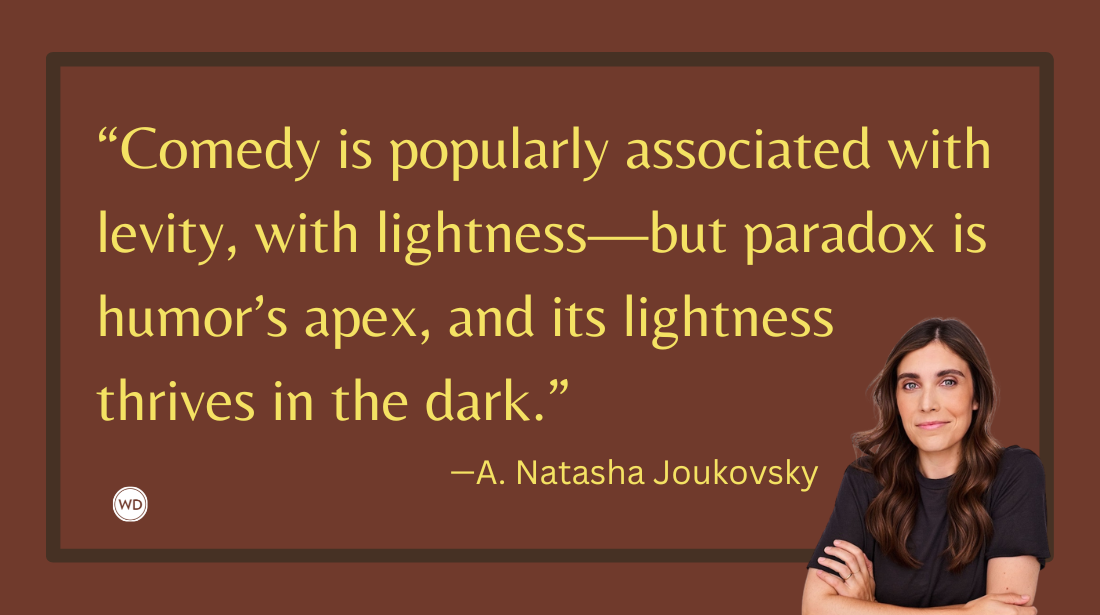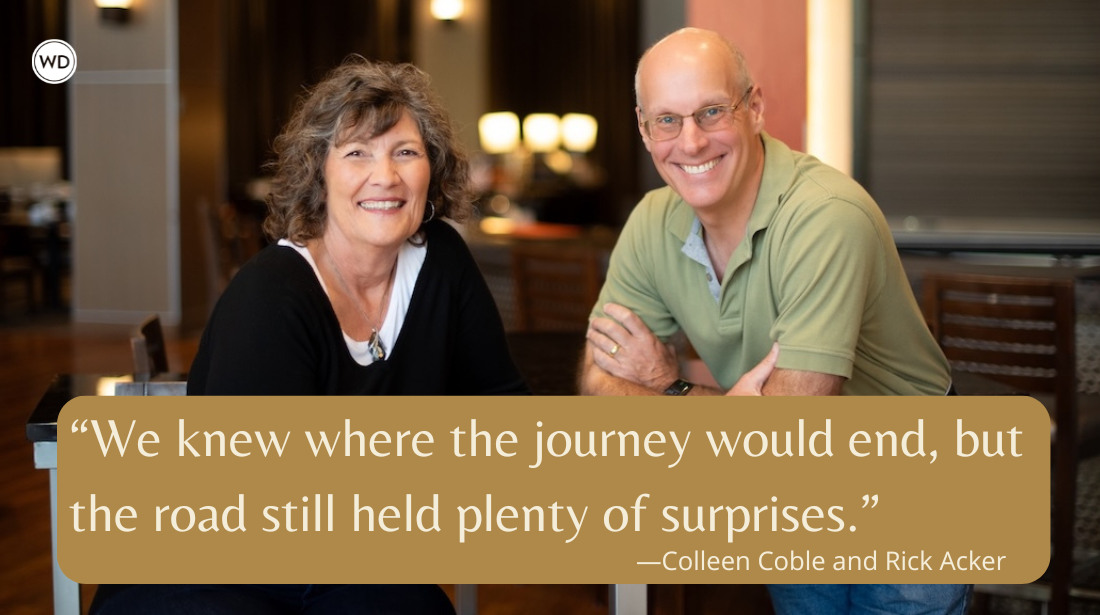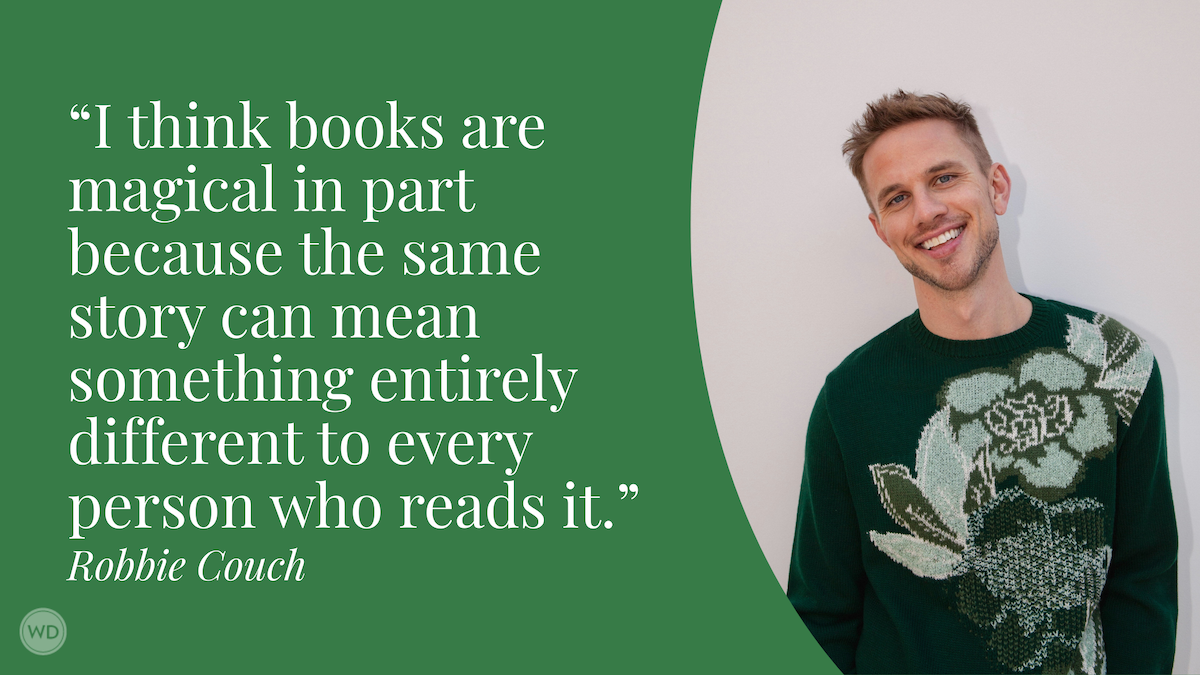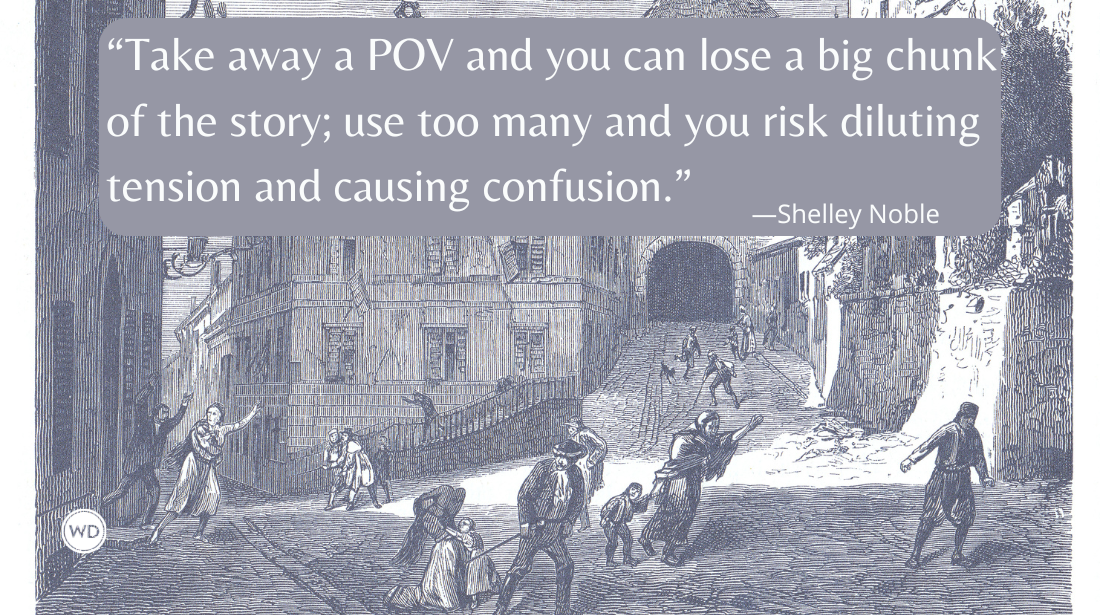Ewan Morrison: On Characters Fighting Against the Plot
Multi-award-winning author Ewan Morrison discusses the lifelong process of writing his new thriller novel, How to Survive Everything.
Ewan Morrison is a multi-award-winning Scottish author and screenwriter, once described as "the most fluent and intelligent writer of his generation here in Scotland." His seventh novel Nina X won Scotland’s prestigious literary prize, the Saltire Society Fiction Book of the Year Award (2019) and is in development as a feature film with director David Mackenzie—whose film Hell or High Water was nominated for an Academy Award (2017).
Morrison’s previous literary awards include the Glenfiddich Scottish Writer of the Year (2012/13) and the Scottish Book of the Year Novel Prize (2013). His latest novel How to Survive Everything has recently been optioned by an international film and television company and is being adapted as a TV series.
Ewan lives in Scotland and has two children and an Australian sheepdog. He is married to the scriptwriter Emily Ballou, and they have a "rustic hideaway" by a Scottish loch. Find him on Twitter.
In this post, Ewan discusses the lifelong process of writing his new thriller novel, How to Survive Everything, the surprising ways one of his characters fought the plot, and more!
Name: Ewan Morrison
Literary agent: Nick Marston at Curtis Brown, U.K.
Book title: How to Survive Everything
Publisher: Harper Perennial
Release date: November 15, 2022
Genre/category: Thriller
Previous titles: Nina X, Close Your Eyes, Tales from the Mall, Menage, Distance, Swung, The Last Book You Read.
Elevator pitch for the book: How to Survive Everything is a chilling and darkly comic thriller about a teenage girl and her little brother abducted by their divorced father and forced to live off grid within a group of survivalists who believe the world is ending.
IndieBound | Bookshop | Amazon
[WD uses affiliate links.]
What prompted you to write this book?
When I was child in the late 1970s, my father snuck me out to see a banned film. It was a British Govt. film, stolen from an archive and shown around local community centers by the Campaign for Nuclear Disarmament (CND). It had originally been created to show the population how to survive in the event of a nuclear war but then it was deemed “too alarming” and hidden in an archive by the state.
It absolutely terrified me, but I learned something from it—how to build a nuclear bunker under the stairs of my own house. So, I did that and became a “doomsday prepper” at the age of 11.
Fast forward 40 years and I’m still fascinated with our all-too-human fears of apocalypse and with the lives of preppers and survivalists.
So, this book has been a long time coming and was prompted by the cold war!
How long did it take to go from idea to publication? And did the idea change during the process?
The idea came about because back in 2013 my wife and I were the scriptwriters on a TV docu-drama called American Blackout, which was made to launch the second season of National Geographic’s TV show, Doomsday Preppers. The research papers that we received on civilizational collapse shocked both of us. Our developed nations are literally “three meals away from anarchy” and our governments know this. So, I felt an urgent need to communicate what I’d learned about “collapse” and how preppers actually prepare.
I also wanted to explore the impact that apocalyptic beliefs (and conspiracy theories) have on a real modern family and so I started to write about two children who are abducted by their divorced survivalist father, who believes he is “saving them” from the end of the world. He basically steals Haley (aged 15) and Ben (aged 9) from under his ex-wife’s nose. It’s an emotional tug of war, at a time of a potential world-ending cataclysm.
Back in 2014, my fictional cataclysm was going to be the predicted “Peak Oil” crisis—a now rather obscure “collapse theory.” I actually shelved the novel from 2015 to 2019 as it increasingly seemed that civilization was not going to run out of oil and so I lacked a credible collapse to base my story round. With all my research, I’d thought that a pandemic was too far-fetched to use as a plot.
Then COVID-19 suddenly appeared, a reality beyond our worst imaginings—and so I took the story out of its hiding place and humbly got back to work, trying to turn our fears back into fiction.
Were there any surprises or learning moments in the publishing process for this title?
There was one lovely surprise which explains why this novel is my debut in the U.S. This involves an old romantic concept from before the days of digital marketing that was once called “word of mouth!”
The novel was first published in the U.K. by a brilliant and talented indie publishing house called Saraband. Then a copy of the book found its way into the hands of a well-known U.S. writer who lives in the U.K. She liked it a lot and took it with her on a trip to New York where she had dinner with a friend who just happened to be the editor at Harper Perennial. The writer recommended the novel, said it was “highly amusing”…and the rest, as they say, is history.
So, I learned that word of mouth does still exist and that publishing (and life) does still have some big surprises.
Were there any surprises in the writing process for this book?
Yes, for the first time ever, I created a character who really didn’t want to be in the story. Like—at all.
With our protagonist, Haley Cooper Crowe, I have this teenage girl who didn’t want to be abducted by her father, who didn’t want to live in lockdown on a smelly farm surrounded with barbed wire with a second family of unwashed, gun-toting survivalists, and who didn’t want to believe that an even deadlier virus was stalking the earth and that she’d never see her mom again. Haley wanted no part in any of this and she rebelled against all the other characters. And me.
And I thought, how am I going to do this? She utterly hates my plot! Then I realized that Haley’s predicament was actually really funny. That her refusal to take part in her own abduction and the survivalist life created this engine of dark humor that drives the story along. Like Haley says to her father (while sighing and rolling her eyes), “I know this means a lot to you, Dad—but could we do your apocalypse another day?”
The more I wrote Haley, the more her rebellious retorts made me laugh out loud and really care for her. Then I discovered that the novel could actually be her diary, and that she would, of course, adopt the style of one of her father’s How To Survive manuals. Haley’s voice told me this would be the most ironic thing to do and who was I to disagree.
What do you hope readers will get out of your book?
I hope readers really feel for Haley’s conundrum—she’s trapped between two divorced parents with polarized and clashing belief systems. Her father believes the world is ending, and her mother believes that the only collapse that’s really happening is Haley’s dad’s mental health.
I see Haley as a kind of hero of Generation Z—she’s surrounded by fake news and conspiracy theories and she has to work out what the truth is, and who to trust when the lives of those she loves are on the line.
In our age of smart phone distractions, I hope readers ask—what is the truth? And what is technology and divorce doing to our kids? I hope readers really feel for Haley as she struggles in her own eccentrically heroic way to survive the mess that we grown-ups have made of her world.
If you could share one piece of advice with other writers, what would it be?
I started out as an artist, so I often find writing tips within the ideas of painters. As Joan Miró once said, "Don't worry about mistakes. Making things out of mistakes, that's creativity."
The surrealists used “happy accident” and tried to encourage unintentional things to erupt within their paintings.
What has this got to do with writing novels?
Well, I once knew an artist who was so terrified of mistakes that she gave up painting. Then she took up writing, but after one book she became terrified of mistakes and she never wrote again. This is what writer’s block and artist’s block really are: the fear of failure that then prevents you from taking any risks. This can also lead to rigidity in writing.
My solution is to cover your page in paint, in improvised sketches of characters and dialogue, to make mistakes, brainstorm and get away from the idea of perfection. Never be afraid to embarrass yourself by trying out something new. And most of all seek out the happy accident—the writing that is more surprising than anything that could have emerged from planning and control.
Yes, make mistakes and make many. Like Haley does. Like I do. Mistakes are creativity, and creativity is the stuff of survival.









